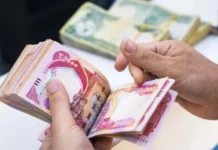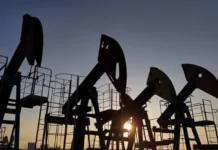strength expert Yahya Al-Aqabi asserted that comparing the Iraqi and Syrian stories in uploading natural gas is inaccurate, given the specific technical, political, and regional instances governing every case.
Al-Aqabi defined for the duration of an interview with the “dinaropinions.com” that “Syria’s success in importing Azerbaijani gasoline is due to technical factors, most substantially the provision of a equipped-made infrastructure in northern Syria. The pipeline between Kilis, Turkey, and the Aleppo geographical region, which dates back to the 1980s, became rehabilitated at a low fee, further to the provision of nearby strength stations equipped to acquire gas with out the need to construct new centers.”
In comparison, he mentioned that the scenario in Iraq is completely specific. in spite of its cutting-edge electricity vegetation and large strength transmission network, a connection to regional gas pipelines has now not yet been carried out. The proposed fuel pipeline venture with Turkey has not been carried out due to stalled business agreements and conflicting priorities among the Ministries of Oil and strength, as well as disputes among the federal authorities and the Kurdistan area.
Al-Aqabi defined that “Iraq suffers from the burning of approximately 17 to 18 billion cubic meters of related gas yearly because of the gradual tempo of fuel collection and processing tasks and the susceptible integration between the tiers of production, transportation, and distribution, in spite of owning verified reserves exceeding 130 trillion cubic ft, which satirically places it in the position of an importer.”
on the other hand, the expert cited that “the Syrian settlement comes within the framework of geoenergy repositioning within the area, with Turkey looking for to reinforce its position as a chief nearby gas hall, while Azerbaijan seeks new markets outside Europe.” Iraq, meanwhile, stays dependent on imports from Iran, making it prone to US sanctions and political strain, and limiting its flexibility in electricity markets.
Al-Aqabi emphasized that the absence of a primary entity to control the fuel portfolio in Iraq, much like country wide groups which include Sonatrach in Algeria or Botas in Turkey, hinders the implementation of an incorporated strategy for local production, imports, and the established order of strategic reserves.
Al-Aqabi concluded by way of announcing: “success in this file is not measured totally by means of the quantities imported, however additionally with the aid of the speed of transport, the combination of the device, and its impact on the stableness of the energy grid. Syria imported about 3.4 million cubic meters consistent with day, a symbolic fulfillment politically however technically restricted, even as Iraq imports more than ten times this quantity to reap relative self-sufficiency. Iraq has the possibility to become an electricity exporter in the subsequent decade if it addresses the structural imbalance in its power policy and strengthens its worldwide partnerships.”





